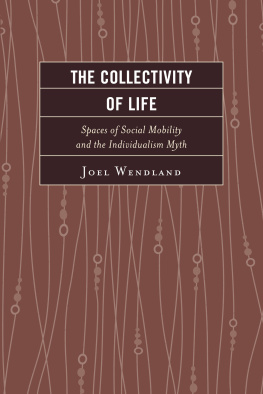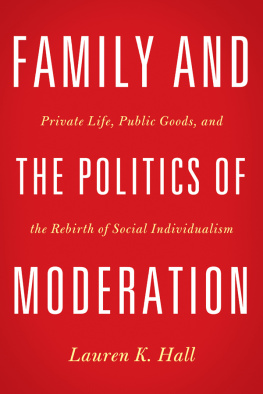Common Ground

First published 2014 by Pluto Press
345 Archway Road, London N6 5AA
www.plutobooks.com
Distributed in the United States of America exclusively by
Palgrave Macmillan, a division of St Martins Press LLC,
175 Fifth Avenue, New York, NY 10010
Copyright Jeremy Gilbert 2014
The right of Jeremy Gilbert to be identified as the author of this work has been asserted by him in accordance with the Copyright, Designs and Patents Act 1988.
British Library Cataloguing in Publication Data
A catalogue record for this book is available from the British Library
ISBN 978 0 7453 2532 3 Hardback
ISBN 978 0 7453 2531 6 Paperback
ISBN 978 1 8496 4976 6 PDF eBook
ISBN 978 1 8496 4978 0 Kindle eBook
ISBN 978 1 8496 4977 3 EPUB eBook
Library of Congress Cataloging in Publication Data applied for
This book is printed on paper suitable for recycling and made from fully managed and sustained forest sources. Logging, pulping and manufacturing processes are expected to conform to the environmental standards of the country of origin.
10 9 8 7 6 5 4 3 2 1
Typeset from disk by Stanford DTP Services, Northampton, England
Simultaneously printed digitally by CPI Antony Rowe, Chippenham, UK and Edwards Bros in the United States of America
Contents
Acknowledgements
Any such work obviously owes debts to more sources than could possibly be enumerated, but it behoves an author to try. Some of the ideas presented here began to gestate, for better or worse, a very long time ago, when I was an undergraduate: particularly under the tutelage of the inspirational Bob Chase and Couze Venn, and were developed as a graduate and post-graduate student with the unfailing encouragement of Rachel Bowlby, Mandy Merck, James Donald, William Outhwaite and Ernesto Laclau. The book itself was a long time coming and could never have been completed without the support of my many friends, colleagues and students at the University of East London, as well as the patience and encouragement of Pluto Press.
Many of the specific ideas and arguments presented here were first floated in public in the pages of the journal Soundings and on the digital commons of open Democracy : the founding and current editors of these two publications have been mentors, inspirations and friends almost throughout my adult life, and I remain unflaggingly grateful for the opportunities which they afford me to think, experiment and learn. Networks of colleagues around the Signs of the Times project, the journal New Formations , the Compass organisation and the Association for Cultural Studies have all contributed immeasurably in helping me to think through the issues in the book, as have long conversations with Mark Fisher and Alan Finlayson. At the same time, without my friends in Lucky Cloud Sound System and Beauty and the Beat, many of the propositions in a work like this which, at the end of the day, is all about the value of enjoying being together would feel empty and didactic, rather than difficult but necessary attempts to express and conceptualise the things that we do.
The actual process of finishing a book usually puts a difficult strain on ones closest family and friends, and this was no different. My partner Jo Littler was supportive and loving as she always is, on all of our adventures, intellectual and otherwise. Our daughters Robin and Isla were very good and very patient while Daddy finished his book, and as excited and delighted as anyone once he had finished. A number of immediate friends and colleagues found themselves with more work to do than they would have had to do otherwise, and never complained: none more so than Tim Lawrence (although Stephen Maddison and Debbie Shaw may have come close). Cedric Lassonde and Cyril Cornet kept the show on the road while I had to duck out of too many nights of shifting speakers and playing records; being able to re-join them was one of the best things about finishing.
Thanks to Sara and Russell for the ginseng candy it really helped. Thanks to my family for everything and to all the friends I havent named.
The book is a present for Isla and Robin.
Preface
What is the most pressing political problem that faces us today?
Of course, to such a banal question, the answer must always be: Which us are you talking about?
In this case, however, there is an answer that could be given no matter who we might be: the intensifying ecological crisis, which threatens the viability of mammalian life as we know it. This is surely the first problem facing all humans and many other life forms on this planet.
And yet, this is a strange answer in a way, because doesnt everybody already know about this issue? Isnt the scientific and political consensus sufficiently robust for us to be able to say that in fact this is no longer even a political problem at all, being the subject of no substantial disagreement (Rancire 1998)?
Well, no, because the political problem is precisely this: everyone knows about it, and yet nobody seems able to do anything about it. Or, more precisely still: we seem unable to take a decision about what changes to our collective behaviour the situation requires, and to enact them at national or international, or often even at regional and local, levels. This, then, is fundamentally a democratic crisis: a crisis in the capacity for collective decisions to be taken and upheld. As such, it is the symptom of a much deeper crisis of political democracy which has been under way now for 30 to 40 years almost as long as mass democracy had lasted before the crisis struck. This democratic crisis has multiple overlapping causes, but it cannot be understood without grasping the political and cultural effects of neoliberalism. Neoliberalism promotes and, where it can, enforces a set of assumptions about human social life which have circulated for centuries, but have probably never been as powerful as they are today. According to these assumptions, the isolated, competitive individual is the basic unit of human experience. They treat all creative agency and potential rationality as properties of individuals rather than of groups, which are in turn understood only as fetters on the freedom and mobility of individuals. They enforce and normalise market relations in every conceivable social sphere, promoting an atomised, fragmented and commodified culture within which it becomes difficult even to imagine belonging to a group on any scale which is actually capable of getting things done.
The consequences for conceptualising and practising democracy are obvious: insofar as democracy necessarily implies the creative and potentially rational agency of groups, it simply cannot be expected to work. This is the unspoken assumption of neoliberal culture which renders most of our political institutions worthless and ineffective today: democracy cannot work, because all collectivities are inherently impotent. Or if they are not, then they should be, because the other informing assumption of individualist culture is this: if collectivities are ever capable of exercising agency, then this is only in the form of a monstrous and homogenising mass, a fascist crowd.
This poses a particular problem for the Left, which has always staked its claims on some kind of belief in the constructive and democratic potential of the collective, but which has struggled to convince large-scale publics of this potential during the decades following the defeat of Soviet communism. Even before that particular defeat, at least since the early 1970s, the traditional vehicles of collective agency Labour and social-democratic parties, trade unions, leftist governments had been losing legitimacy in most parts of the world, as they struggled to adapt their industrial-era practices to the complexities of a post-industrial, post-Fordist world.
Next page












